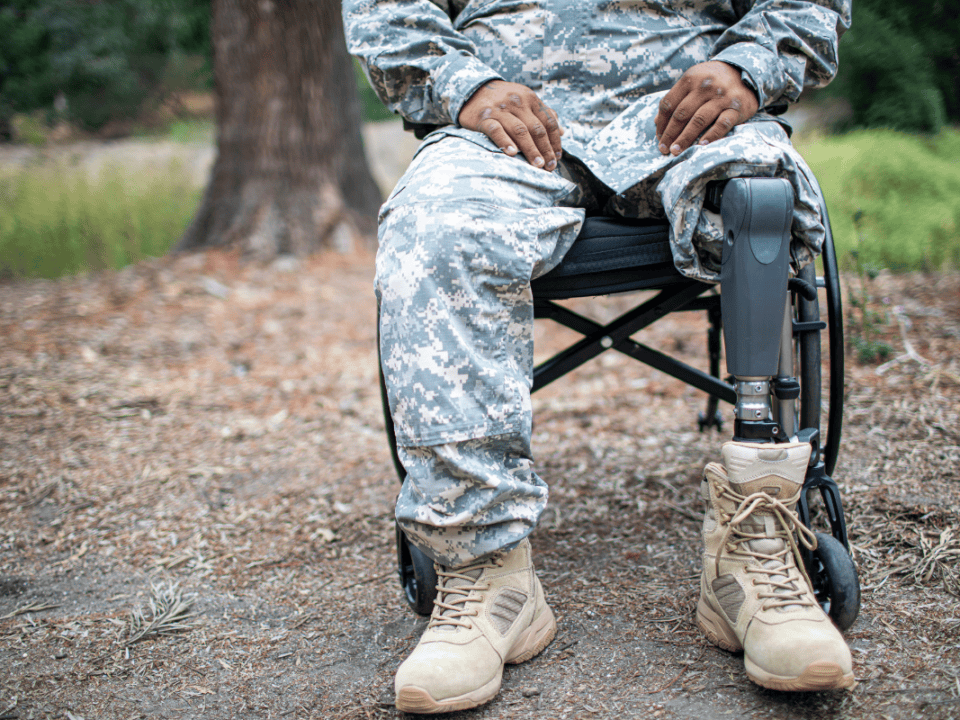 In our initial series on VA Disability Claims, we touched on filing appeals in the case of a decision that you feel was incorrect. Today, we’d like to go a little more in-depth into what happens when you file a VA Notice of Disagreement.
In our initial series on VA Disability Claims, we touched on filing appeals in the case of a decision that you feel was incorrect. Today, we’d like to go a little more in-depth into what happens when you file a VA Notice of Disagreement.
What the VA Says About Them
On the VA Disability site, there is an article about VA Notices of Disagreement, and they go into the usual issues that come up that would lead someone to file.
On the site, they warn potential claimants that even if they believe their claim denial was wrong or that the details are incorrect, “the odds are against it”. Veterans often feel discouraged when they read things like this, but don’t give up!
It’s still essential, despite these kinds of assurances, to speak with a legal representative before simply accepting a claim denial you feel was made in error.
If you received an incorrect rating on your VA Disability claim, including an incorrect denial, a too-low percentage, or an incorrect effective date, it’s important to speak with a legal representative about appealing that denial and what steps you can take.
Remember, it your right as the claimant to appeal a decision from the VA if you feel it is incorrect or erroneous.
Your First Steps Towards Filing a VA NOD
First, carefully read your notification letter (which will include your rating decision). The paperwork will walk you through the VA’s explanation for your rating and what is needed to receive a higher one. It will also include your effective date and why. If your condition was rated to be not service-connected, the VA is required to include an explanation for why that decision was made.
If you are concerned that your rating was incorrect, make copies of all documentation sent to you regarding your rating. Put one set of copies away in a safe place, and make a folder with the rest to bring with you when you speak with a legal representative. Also include any medical bills or other documents regarding your condition or that may explain why the VA’s decision was incorrect in your eyes.
Most decisions are not considered final until a full year has passed from the date the decision was made. Typically, you have one year to file a Notice of Disagreement.
It is very important to read the notification letter you received very carefully. While most appeal deadlines are typically one year, there are a variety of VA issues and decisions with much earlier deadlines. When appealing a VA decision, it is very important to adhere to the deadlines given in the VA decision letter you received.
As always, we recommend to our clients that they start working towards filing said Notice of Disagreement fairly quickly, as you’ll want as much time as possible to make your case. If you can avoid the added stress of filing last-minute, it will help you feel more in control of the process.
On Submitting the Notice of Disagreement to the VA
Filing the Notice of Disagreement includes submitting VA-Form 21-0958. This form should be included with your claim decision. While it’s your opportunity to explain to the VA why you believe their decision was in error, we do suggest that you have a legal representative work with you when filling the form out to ensure you make the absolute best case you can.
Do you believe the VA totally missed a specific detail and that’s the root of the issue? You may find that pointing that out clears up the entire problem. You may receive some pushback from the VA as well — that’s why we suggest going over the details of the form alongside a legal professional who has some experience in working with the VA to achieve a satisfactory result.
There are three primary areas of disagreement that are often addressed:
- Service-connection
- Effective date
- Evaluation of Disability (or rating percentage)
Working with a legal representative who has experience with Veterans Affairs can help you ensure that your form is filled out correctly and in totality.
The Decision Review Officer Process vs. the Tradtiional Appellate Process: How Do They Differ?
There are two appeals processing methods the VA uses in processing appeals.In completing the Notice of Disagreement form, you will be asked to one of the two processing methods.
The first is called the Decision Review Officer process (or DRO), and the second is the traditional appellate review process. If you are uncertain as to which processing method is best for your claim’s appeal, it’s important that you consult with someone before making the decision and understand the differences between the two processes.
If you choose the DRO, a rater with some experience in dealing with claim appeals will conduct an in-depth review of your claim, any new evidence you provide, and your Notice of Disagreement form. By selecting this process, you will be granted a hearing with a DRO. Additionally, the DRO may schedule new or additional compensation and pension exams (C&P exams) for your claim and appeal.
In the traditional appellate review process (TAP), a VA rating specialist will be the one looking over the prior rating and what new evidence has been presented, checking to see if a clear and unmistakable error was made on the previous decision. You are not granted a hearing on your appeal in this process.
The original VA decision may be upheld, or a new decision could be made based upon the evidence of record. Once this decision is made, you’ll receive a Statement of the Case that describes what information was taken into account during the review, and how the eventual decision was made, and what steps would be necessary to continue your appeal if needed.
What If You Still Disagree With the New Decision?
The good news is, you still have options! You can file a VA Form 9 to appeal to the Board of Veterans Appeals.
The bad news is that the formal appeals process can take up to several years. It’s essential to have every single piece of evidence and information that you have to support your appeal ready before your case ever hits the Board of Veterans Appeals to help keep the process moving as quickly as is possible.
VA Disability Claims in Columbia, SC
At BNTD Law, our SC Veterans Advocates team is made up of former servicemembers, so we understand what it means to work with the VA not just as attorneys, but as military veterans ourselves.
Whether you’re searching for help with filing an appeal on your VA Disability claim, you need help seeking aid after suffering from Post-Traumatic Stress Disorder (or PTSD), you’ve survived sexual assault while in the military or suffered from Traumatic Brain Injury, it’s our mission to ensure your individual rights are represented. Reach us by phone at (803) 779-7599 or contact us online at any time to request your free consultation.




